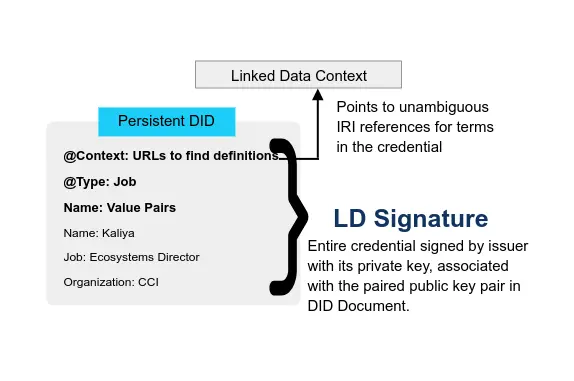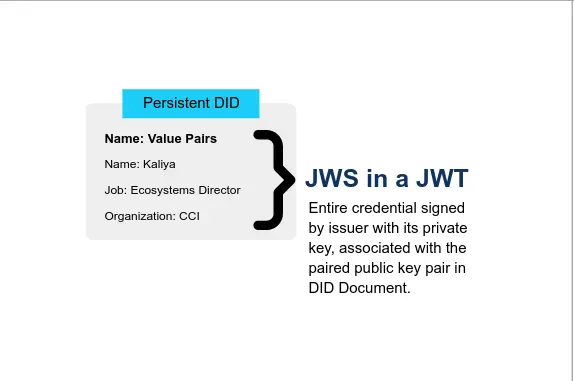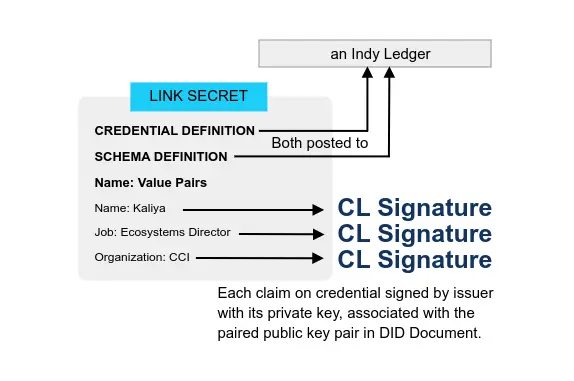MyDex
Company
Name: MyDex
Main: Website, Blog, Socials: Twitter, Youtube, Crunchbase, Founder: William Heath Founded: 2008 Location: United Kingdom, England, London Sector: Enterprise Focus: Personal DataWhen Mydex came into being in 2007, its founders made a number of important decisions — these decisions are what make Mydex remain unique even in today’s blossoming Personal data ecosystem. It had to be free to individuals for life, the data had to be under their control, and Mydex as a company had to be self-sustaining and protect its core values. These prerequisites guided the evolution of Mydex: a Community Interest Company, a Social Enterprise and its range of trust platform services for citizen controlled storage and exchange of Personal data, identity and engagement, in a safe, secure and easy manner. We are working to improve outcomes for individuals and organisations alike.
Product
- Helping Data Trusts Manage Personal Data Type: Post Date: 2022-05-03
Mydex CIC has just published a blog for Cambridge University’s Data Trust Initiative on ‘Helping Data Trusts Manage Personal Data’. In it, we address the challenges that arise as the Data Trust movement begins to scale.
Meta
- Can I trust you? Type: Whitepaper Date: 2022-01-04
- Revolutionising healthy ageing Type: Post Date: 2021-11-18
- Our New White Paper: Achieving Transformation At Scale Type: Whitepaper Date: 2021-05-14
This is the second of two blogs on our new White Paper: Achieving Transform At Scale. The first blog focused on the infrastructure challenge. This blog focuses on the parallel need for institutional innovation.
Mydex’s role will be to provide the data sharing infrastructure to enable individuals and service providers to safely and efficiently share the right data at the right times, in ways that protects individuals’ privacy and puts them in control of their data at all times and enable two way engagement and feedback throughout the project.
This White paper explains the scale of the potential benefits, how they can be achieved, and how they can be achieved at scale.○ Mydex CIC is starting where the need is greatest and resistance is lowest - in public and third sector services needing to cooperate with each other to deliver efficient, effective services to individuals.
○ It is using Personal data store-enabled solutions to specific problems to demonstrate the superiority of the Personal data store approach - starting with reductions in friction, effort, risk and cost for both bona fide service providers and citizens.
Ecosystem
- MyDex CCI on working with the Scottish Government Related: DigitalScot Type: Post Date: 2022-11-12 Sector: Public
- Public Spending: One Way to Solve Many Problems Type: Post Date: 2022-04-07 Sector: Public
- Achieving Change At Scale Type: Post Date: 2022-01-04 Policy: National Data Strategy Sector: Public
- Not Just Personal Data Stores Type: Post Founder: Alan Mitchell Date: 2021-06-25 Policy: National Data Strategy Sector: Public
- Data: A New Direction — But Which Direction? Type: Post Founder: Alan Mitchell Date: 2021-06-08 Policy: Data: A New Direction Sector: Public
- Hidden in Plain Sight — the Transformational Potential of Personal Data Type: Post Date: 2021-04-12 Sector: Public Tech: Personal Data Stores, VC
- Misconceptions that Kill Progress in Personal Data Type: Post Date: 2021-04-12 Sector: Public
- AI: The Emperor’s New Clothes? Type: Post Date: 2020-11-12 Sector: Public
- A critical fork in the data road? Type: Post Date: 2020-09-22 Sector: Public Tech: Portability
- MyDex is working with the Scotish Government Parent: DigitalScot Type: Post Date: 2020-05-13 Sector: Public
Over the past months Mydex CIC has been working for the Scottish Government on a strategy for implementing and scaling a system of ‘smart entitlements’ for the citizens of Scotland.
“We will identify where there may be shared interest, duplication or overlap in intended policy outcomes over multiple portfolios. Where there is, we will look to develop a more effective and efficient cross-government solution.”
This is the third in a series of blogs providing edited extracts from Mydex CIC’s response to the UK Government consultation around a new National Data Strategy. The first focused on how to unleash the full potential of Personal data, the second on why every citizen should be provided with their own Personal data store. This blog explains why this strategy can be quick and easy to implement.
This is the fifth in a series of blogs which provide edited extracts of key points made by Mydex CIC in its response to the UK Government consultation around a new National Data StrategyThis blog focuses on the main ingredients needed to unleash the full potential of Personal data — in addition to Personal data stores.
This is the fifth and final blog in our series about the UK Government’s proposals for data protection reform — “Data: A New Direction”. Previous blogs focused on the thinking behind the proposals. This blog summarises what the main proposals are.
Personal data stores apply the same economic logic to transform the costs of producing data driven services. Verified attributes are the digital equivalents of Henry Ford’s standardised parts. By enabling one organisation to instantly re-use data verified by another organisation they eliminate the need for vast amounts of duplicated effort and rework (re-creating each data point from scratch or checking its details, provenance etc).
It is not possible to make good policy decisions about priorities for investments, grants, innovation and research projects or rules and regulations if the grounds for these decisions are faulty. Currently, effective policy making is hampered by widespread misunderstandings about where the biggest economic opportunities lie, the nature of issues such as control, and the role of citizens in the workings of the data economy.
One reason the UK Government wants to abolish citizens’ rights to data protection is to create conditions for Artificial Intelligence (AI) to blossom. This, it says, will “bring incredible benefits to our lives”.
In its discussion of data portability the EU rightly recognises the economic importance of this issue, stressing that “market imbalances arising from the concentration of data restricts competition, increases market entry barriers and diminishes wider data access and use.”
MyDex is a community interest corporation that has been working on building real products in the real world. They wrote about the ongoing work enabling public sector organizations to give citizens verifiable attributes they keep in their own data stores and can prove to other parties without the issuing organization in the middle.
Explainer
- Designed for Integrity Type: Post Date: 2022-06-22 Market: Design
- The Perils of Pre-Copernican Data Strategy Type: Post Founder: Alan Mitchell Date: 2022-05-31
- Getting Identity Right. At Last. Type: Post Date: 2022-05-23 Tech: Personal Data Stores, VC
- Deploying Personal Data Stores at Scale Type: Post Date: 2021-12-30
- Why is data valuable? Type: Post Date: 2021-12-18 Policy: Data: A New Direction Sector: Public
- Design Principles for the Personal Data Economy Type: Post Date: 2021-10-25 Market: Design
- Getting Data Security Right Type: Post Founder: Alan Michel Date: 2021-10-22 Market: Security
- Flicking the Switch of Personal Data Type: Post Date: 2021-10-22 Standard: ISO 27001
- Why we need new, nationwide Personal data infrastructure Type: Post Date: 2021-04-12 Policy: National Data Strategy Sector: Public
Below are some of the design principles that underpin our infrastructure and services — principles designed to ensure that what we do truly does serve citizens, today and into the future.
Today, ‘everyone’ including powerful actors and decision-makers like the UK Government ‘just know’ that organisations are the centre of the Personal data universe, and that everyone else including citizens revolves around these organisations.
By recognising the pivotal importance of verified attributes and the potential role of Personal data stores in enabling the sharing of these attributes, it is opening the door to actually solving the problem of identity. At last.
The big question now is how to enable this to happen at scale, safely, securely and efficiently. One key element of this is useful, easy-to-use interfaces, the taps and switches that mean people can use the infrastructure without having to think much about it.
prompted by the UK Government’s proposed reforms of data protection law contained in its consultation paper Data: A New Direction. […] Under the banner of tackling ‘consent fatigue’, abolish citizens’ right to consent to the collection and use of their data: achieved by expanding the definition of organisations’ ‘legitimate interests’ (where they don’t have to seek consent) to cover almost every activity
A key part of this is continuity and longevity: a Personal data store is for life, so the institutions providing Personal data stores should be designed for decades (centuries, even). Whatever particular corporate form they take, legal safeguards relating to continuity and longevity of purpose need to be built into how they operate.
data security is about system-wide design, where many different elements need to fit together to create a working whole.
Over the last 14 years we have built the infrastructure needed to make citizen data empowerment possible — infrastructure capable of providing every individual with their own Personal data store, where they can safely and securely collect their own data, use it and share it under their own control. This infrastructure is now live and operational, officially recognised as a supplier to public services on procurement platforms in both England and Scotland and independently accredited for data management security under ISO 27001.
The central plank of Mydex CIC’s consultation response is that the UK needs to build a new layer of data logistics infrastructure that:- Includes citizens in the workings of the data economy, empowering them with the ability to collect, store, use and share data about themselves independently of any data controllers they may have data relationships with.
- To achieve this, the Government needs to ensure that every citizen is provided with their own Personal data store, which enables citizens to collect, store, share and use their own data, under their own control, for their own purposes, independently of any organisation that may have collected data about them.
- These Personal data stores should be designed to act as neutral, enabling nodes in a vibrant data sharing network, whereby citizens can obtain copies of their data held by organisations and can forward relevant elements of this data (such as Verified Attributes) to other data users under their control, as and when beneficial and necessary.




